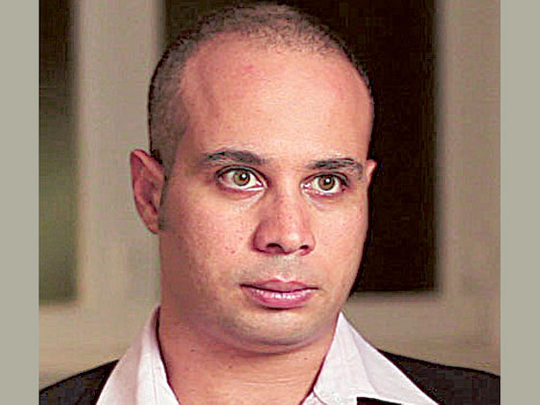
Cairo: The pro-military fervour and concern about demonisation of the Brotherhood is also driving a wedge between activists who played major roles in the uprising that drove Hosni Mubarak from power.
A very public argument is raging between Ahmad Maher and Esraa Abdul Fattah, the founders of the April 6 Youth Movement, an important player in the street politics of 2011.
April 6 enthusiastically supported the June 30 protests and visited with interim president Adly Mansour after Mursi’s ouster, agreeing to travel to Western countries to sell the idea that what happened in Egypt was a second revolution, not a coup.
But shortly afterwards Maher tweeted to Abbas: “If we assume it’s not a coup, and I tell people it’s not a coup, when they screw us again like they did in 2011, what would I tell people?” He was referring to the 16 months of military rule after Mubarak’s fall, which were marked by the arrest, torture, and military trials of activists.
Maher’s tweet created a rift in the April 6 movement, with Esraa leading the charge against him. She has campaigned to have Maher drummed out of the group and written columns denouncing the Muslim Brothers as terrorists and praising the military for saving Egypt. Abbas says the criticism “comes mostly from people who were against us when we were fighting for the overthrow of Mubarak in 2011, and for whom June 30 was the first time they ever came out in the streets.”
But it’s also coming from former comrades. He says many activists who opposed Mubarak call June 30 a people’s revolution and see the Army, which ruled Egypt in 2011 and 2012, as a positive force in Egyptian politics. “In their hearts, I’m sure they know this is not true. No real democracy can come from this. It has brought the army back on the scene, and it has brought back the remnants of Mubarak’s regime. Maybe they are just hopeful that it will be different this time.”
Mursi’s ouster had also caused a rift over one of the icons of the 2011 revolution, the Facebook page ‘We Are All Khaled Said’. The page, commemorating a young Egyptian beaten to death by police in 2010, focused popular rage around the abuses of the Mubarak years and served as an important precursor to the 2011 uprising.
The administrator of the Arabic version of the page, Wael Goneim, became a worldwide celebrity after the fall of Mubarak after being detained for weeks and making an impassioned appeal for Egyptian democracy on national TV after his release.
But after praising the military’s decision to oust Mursi on July 3, Goneim has gone dark, with no further Facebook statements or interviews. But his counterpart administrator on the English version of the page has turned against the coup, and has received furious comments and death threats in response.
He asked that his name be withheld because he’s worried he could be arrested for his political views. “We are now officially back to January 24, 2011, back into the Mubarak regime. Those activists who may still be unsure will very soon realise this sad reality.”
He agrees with Abbas that “this coup was not a response to protests, but it was simply pre-planned and organised by the military, some opposition leaders and supported by different government establishments, including the police. A bit more pressure and peaceful protests in the street could have delivered early elections or any other democratic solution.
One day is not enough. Military coup is not a solution. Democracy is.” Zahraa Said, Khaled Said’s sister, is furious with the English language page.
“We have written them many times to stop speaking my brother’s name but we have received no reply,” she says. “They no longer represent what is happening in the street.”
Despite Goneim’s Arabic page coming out in support of the coup, Goneim also bears Zahraa Said’s wrath for his silence since July 3. Goneim “has not been supportive enough of the June 30 revolution,” she says. “They should rename the pages, ‘We Are All Muslim Brothers’.”












